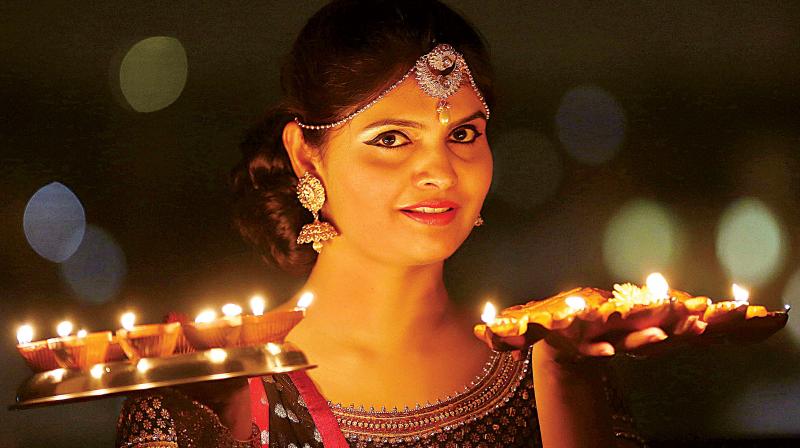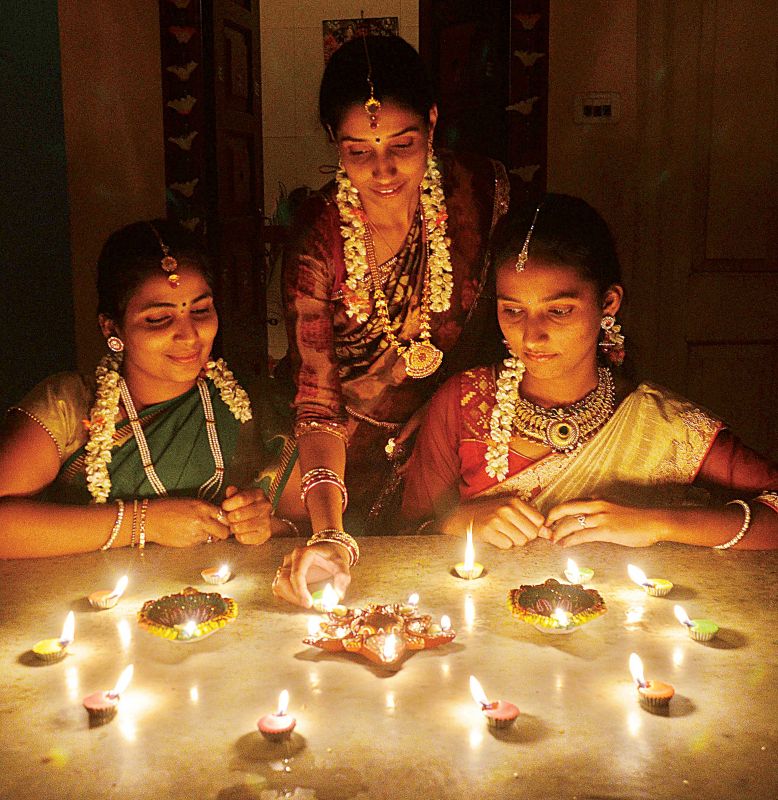Noise and smog: No Diwali this

Bengaluru: A Diwali without firecrackers? It hasn't happened yet! But environmental experts are warning that any rise in particulate matter, over and above the 2.5% acceptable limit, alongside the additional spike in chemicals such as sulphur dioxide, carbon monoxide when firecrackers go off will add to the already existing pollutants and endanger the health of many who are susceptible to air pollution.
And then there is the noise!! So loud that all demons stay away! So bright that they light up the darkest corners...
We don't want to play spoilsport. But let’s ensure that firecrackers are burst only between 5pm and 10pm, and that we do not cross the permitted decibel levels of 55 decibels for residential areas.
Cracker of a Diwali? Not good for ears, lungs
“May millions of lamps illuminate your life with endless joy, prosperity and wealth forever … Wishing you and your family a very Happy Diwali,” many Diwali greetings begin like this. Diwali for us is perhaps the most important festival in the calendar year.
Diwali not only brings with it the promise of prosperity, joy and wealth but also pollution! Firecrackers, which are central to this festival, are the cause of a massive spike in air and noise pollution during the season.
City-based pulmonologist Dr. B.V. Murali Mohan said, “The bursting of firecrackers causes many problems. There is a sudden rise in air pollution, as chemicals such as sulphur dioxide, carbon monoxide and particle matter, up to 2.5, are released into the atmosphere. These chemicals are very harmful for human lungs, especially children's, who have smaller lungs. Inhaling these chemicals could lead to potential problems in the future."
A duty doctor at Lakeside Medical Centre and Hospital said, “It is not air and noise pollution alone. During Diwali every year, there is always a spike in the number of burns cases too.”
Dr Vasanthi Anand, a city-based ENT specialist, stressed on the damage air and noise pollution could cause to people. “Sudden bursts of noise such as those caused by ‘atom bombs’ and similar firecrackers can damage the cochlear hair cells which can lead to permanent ear damage. Noise from such crackers reaches up to 80 decibels which can cause tinnitus, a condition where your ears hum. It generally occurs after a loud explosion.”
Recently, three children petitioned the Supreme Court, which immediately moved into action and set a time limit to burst firecrackers. Firecrackers are meant to be burst between 5 pm and 10 pm. Though the permitted decibel level is 65 for commercial areas, 75 to 85 for industrial areas and 55 for residential areas, some firecrackers exceed the limit by more than 20 decibels.
The Karnataka State Pollution Control Board chairman was unavailable for comments. It is about time the authorities banned firecrackers or at least saw to it that rules and regulations were enforced, said doctors and environmentalists.


